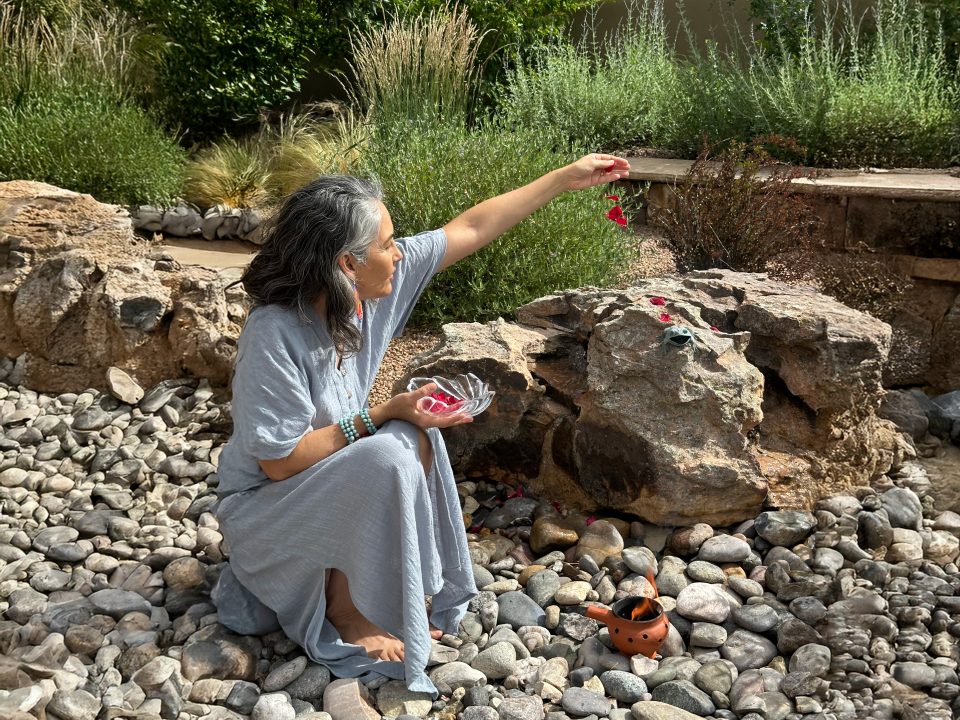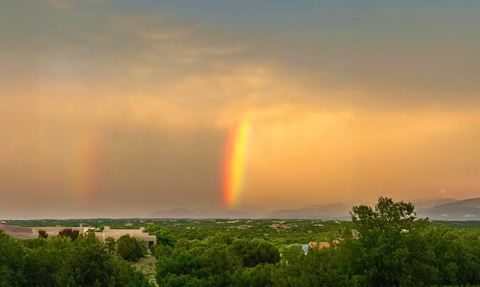
Walking through the fire of transformation
September 30, 2024
Is your life a maze or a labyrinth?
October 14, 2024Uncovering Your Blind Spots

After we embark on our healing journey towards wholeness and self-awareness we realize the need to embrace our dark shadow – those aspects of ourself that are difficult to accept as ours because of pain, shame, or blame. In our determination to heal we begin the painstaking labor of embracing, transforming and illuminating our wounds and traumas.
Yet, beyond the parts of us that we know we must heal and integrate, we have what in psychology is known as blind spots—unconscious processes that shape our perceptions and actions without our conscious awareness. Just as a driver has a blind spot in their field of vision, we have cognitive blind spots that obscure our self-understanding and makes us act and react in ways that are biased.
I first understood my own blind spots over a decade ago when I realized that I had not visited my mother for months with the handy excuse that she was well and independent while I was busy doing important work for my students and clients. Then, a wise medicine woman came to visit me and the topic of my mother came up. Once I shared my vision of her independence and my perfect love at a distance, she reflected back to me that in reality I was afraid of connecting with her at a deeper level for what uncomfortable feelings might flare up from my childhood. Also, she pointed out “it feels like you are tired and just want to avoid the five hour drive.”
This wise lady helped me realized what was beneath my reluctance to visit my mother… She opened my eyes to a view that was hidden to me, not because I wanted to hide it, but due to my unrecognized inner life.
To do the work of owning our shadows we pay attention to our projections on others. For example, when I point my finger to blame another person, I can exercise my courage to see how I also participated in creating a situation. In this way I alchemize my own short-comings to cultivate a more ample understanding of reality and of myself and I embark on the journey to become a wise old woman myself.
However, when we don’t have situations where we project our shadow then those parts of our inner life or personality remain obscure and that is why they are called blind spots. For this reason it is not a bad idea to take time off from our busy lives to go out in nature and quiet our minds while asking the winds, the trees, or the moon to speak to us about what we is not seen.
Another way to bring blind spots to the light is by reflecting about delicate topics of life with friends who are wise and whom we trust. Of course, if we offer each other feedback has to be with the utmost sensitivity and respect. We may say something like “can I offer you my observation about this or that?” and the person being asked needs to empower herself or himself and say “yes” or “perhaps at another time” or simply say “not right now”.
In this on-going journey of self-discovery, embracing the wisdom of trusted friends and the silent whispers of nature, we can illuminate the hidden corners of our psyche, opening the way for deeper connections and a more authentic, compassionate life.
Blessings!
Marcela Lobos




